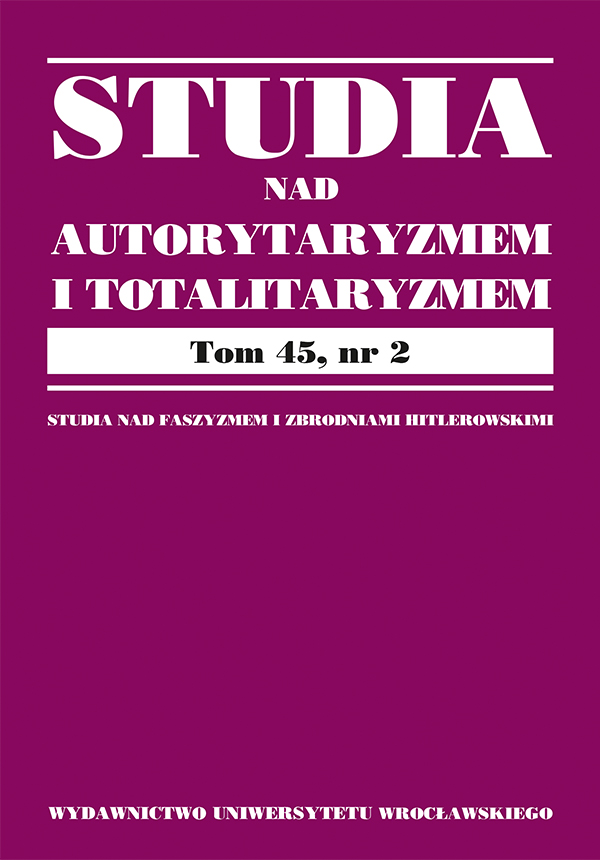Korea Północna. Modelowy przykład współczesnego państwa totalitarnego
North Korea: A model example of a modern totalitarian state
Author(s): Jakub ChusteckiSubject(s): Law, Constitution, Jurisprudence, International Law, Political Sciences, Comparative politics
Published by: Wydawnictwo Uniwersytetu Wrocławskiego
Keywords: totalitarianism; North Korea; State terror; Workers’ Party of Korea; Juche
Summary/Abstract: Totalitarianism in its classical form represents a general model of state functioning. Depending on the perspective adopted, the authors draw attention to its two basic dimensions: socio-anthropological and systemic, i.e. institutional. Adopting an institutional perspective necessitates a comprehensive analysis of the individual elements of the system, i.e. the dominant, all-encompassing ideology, the mass monoparty, the system of terror, the monopoly on weapons and violence, the centrally controlled economy or the state monopoly on communication, because only if all the elements mentioned are present we can call the system totalitarian. These features were noted by researchers of non-democratic regimes as early as the 1950s on the basis of observations of regimes such as the Third Reich or the USSR. It would seem that with the post-war dynamic social and technological development, concepts previously used to describe social phenomena (including the concept of totalitarianism) would lose their original meaning. However, an analysis of the political system of North Korea allows one to pose the thesis that the so-called post-totalitarian states described today exist alongside totalitarian states in the classical sense of the term. The purpose of this paper is to portray the political system of the DPRK and to try to answer the question of whether we can describe North Korea as a model totalitarian state. The status of North Korea in the literature varies widely. Some researchers describe it as an authoritarian state, others as a totalitarian state, and some even call it a post-totalitarian one. The analysis of the individual elements of North Korea’s political system from the point of view of their totalitarian character also makes it possible to answer an extremely important question for researchers of non-democratic states: does totalitarianism have a clearly defined chronological framework or is it an ahistorical and universal concept? As a result of the analysis, it has been proven that North Korea fulfils all the prerequisites indicated by Carl Friedrich and Zbigniew Brzezinski, as well as those articulated by Hannah Arendt, Alexander Hertz or Roger Scruton necessary to qualify it as a model totalitarian state. Significantly, since the mid-twentieth century, North Korea has had an official Juche (juche) ideology that defines all aspects of state and society. There is also a mass party centred around a leader, a large-scale system of terror, both institutional (e.g. political police, concentration camps) and non-institutional (e.g. a system of neighbourhood control or hunger strikes). The party elite has total control over news broadcasting, with only the available public media saturated with government propaganda. The Korean Labour Party also has undivided power over the Korean military and the economy (which, incidentally, is part of the official Juche ideology). North Korea thus fulfils all the prerequisites to be considered a modern totalitarian state.
Journal: Studia nad Autorytaryzmem i Totalitaryzmem
- Issue Year: 45/2024
- Issue No: 2
- Page Range: 181-205
- Page Count: 26
- Language: Polish

